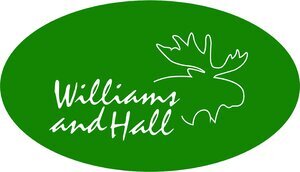Let's Keep Our National Parks Affordable and Accessible
I just returned from a fly fishing trip to Yellowstone National Park. I have been visiting Yellowstone annually almost every year since 1991. It is a wonderful place – perhaps the most unique place in America. The ability to see natural wonders in combination with lots of wildlife is remarkable. The rivers and fishing are terrific.
National Park Crowds
However, this trip, more than any time in the past, was made stressful by the numbers of people in the park. I was there in late October, which is far less crowded than the summer months. It was my expectation of not competing with others for fishing space in the park that created my stress.The 59 national parks are certainly parks for all people. I have always been against limitation of access to the national parks. Some would limit access in the name of ecological conservation. I grasp that position, but believe we can achieve these needs without limiting access.Having said this, pressure on the national parks is increasing. Approximately 331 million people visited the National Parks in 2016, compared to 286 million in 2000. More specifically, Yellowstone’s attendance has grown 50% from 2000 to 2016. No wonder I think there are more people in the park, regardless of time of year.
Proposed Increase in Entrance Fees
The federal government is considering doubling the entrance fees to $70 per car for certain National Parks during peak times of the year. The idea is to use the additional revenue to improve park infrastructure. While I support the concept of use fees (like fishing licenses), I think raising entrance fees to our national parks is bad strategy.
At Williams and Hall, we have watched the decline in use of the Boundary Waters and Quetico over the last decade. Worse, the average age of visitors is increasing. This means that younger people are not getting out into nature. National parks act as a gateway to immersing kids in the grandeur of nature. Because you can travel through national parks via cars and interact with rangers, the immersion is much easier than a trip into the Boundary Waters, or a backpacking adventure in Colorado.
Why does this matter?
National parks offer the chance to learn respect for and understanding of the natural world that we live in. This leads to better protection of our limited natural resources.
Studies show that spending time in the outdoors has a vast range of health benefits, including increasing your immune system.
Spending time in the outdoors boosts your creativity.
National Parks are low-tech environments, many with spotty cell coverage, which allows a little downtime from texts, calls and emails.
Many national parks are loaded with history lessons.
National Parks are common shared heritage of all Americans.
National parks offer a chance for family time.
Immersion in Nature
williams and hall outfitters ely boundary waters
Perhaps most importantly, a visit to a national park may spur a future trip with deeper immersion into the wilderness. Being in wilderness is one of the best ways to learn about yourself and to develop yourself – to develop your values and perspectives – and to see how you react to stress and challenge. It can also remind you of how beautiful our world is, and how important it is to protect it.In the end, I want to have Yellowstone to myself when I visit. This is selfish, and not in our world’s best interest. Let’s keep access to our national parks, indeed our national treasures, affordable for all.


